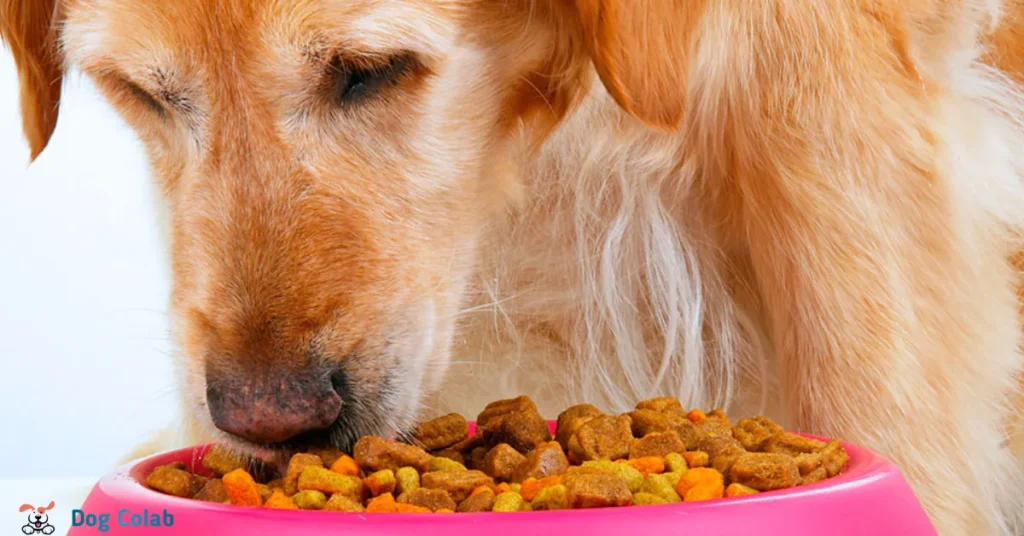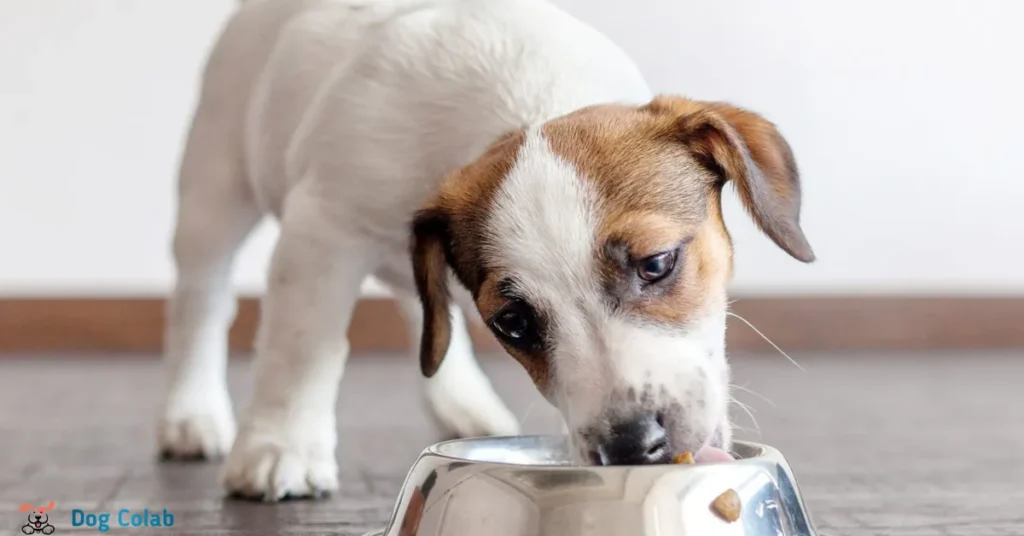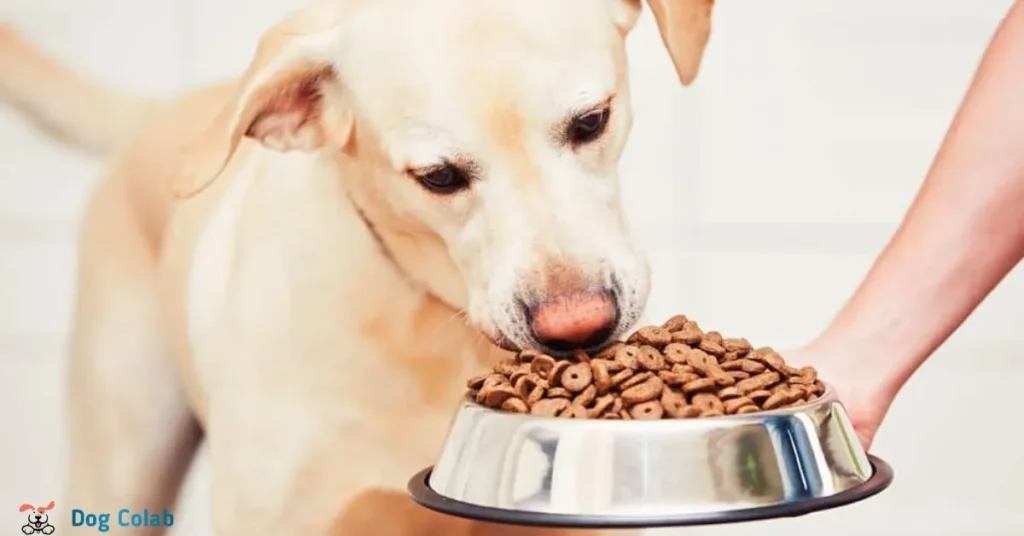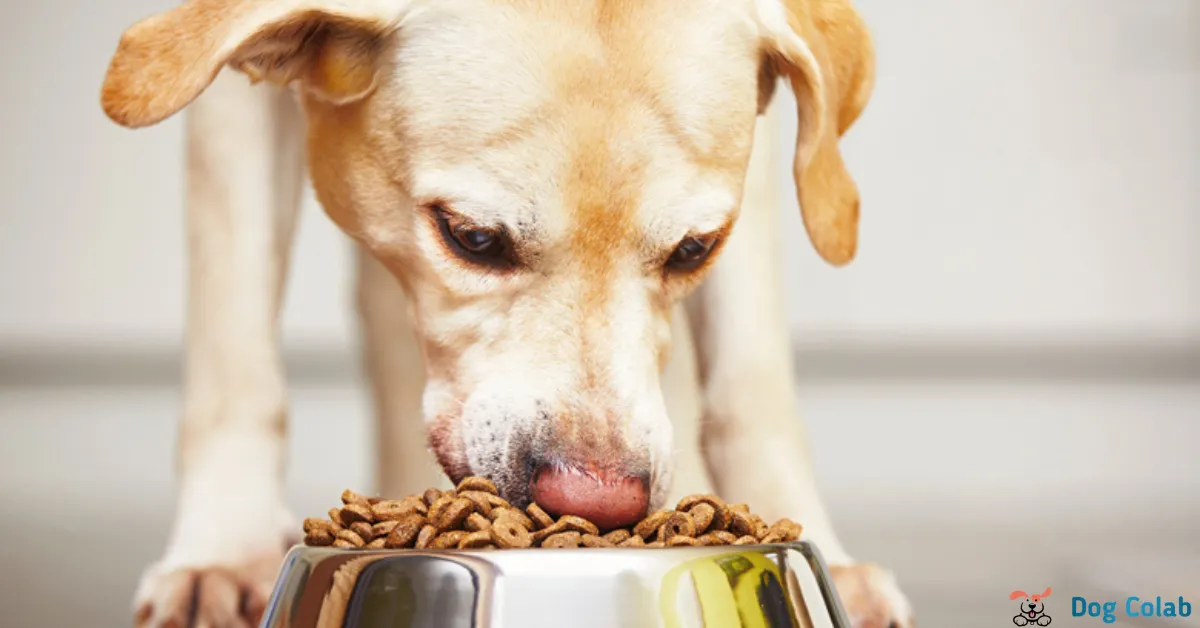If you’ve noticed that your furry friend is taking more time to finish their meals, you might be wondering why is my dog eating slower than normal. While it’s normal for a dog’s eating habits to vary occasionally, a sudden change in eating speed can sometimes indicate underlying issues.
So, the dog may be eating slower than usual due to dental issues, stomach discomfort, or simply a change in appetite.
In this blog post, we will explore some common reasons why is my dog eating slower than usual and what you can do to address the situation.
Slow Eating Is Normal For Dogs?
Yes, slow eating can be normal for some dogs. Just like people, dogs have their own eating habits. Some dogs naturally eat their food slowly, while others may gobble it up quickly.
Slow eating can be good for dogs, as it can help prevent digestive problems like bloating or choking. If your dog eats slowly and doesn’t have any other health issues, it’s usually nothing to worry about.
(12 Reasons) Why Is My Dog Eating Slower Than Usual?
Here are the possible reasons why your dog eating slower than usual.

1. Dental Issues
One of the most common reasons for a change in eating speed is dental issues. If your dog is experiencing tooth pain, gum inflammation, or dental decay, they may find it uncomfortable to chew their food. As a result, they might take longer to finish their meal. Signs of dental problems in dogs can include bad breath, drooling, and pawing at their mouth.
2. Gastrointestinal Problems
Gastrointestinal issues can also cause a decrease in appetite and slower eating. Conditions such as gastritis, gastroenteritis, or food allergies can lead to digestive discomfort, nausea, or pain during eating. Dogs may eat slowly to avoid exacerbating these symptoms.
3. Anxiety or Stress
Stress or anxiety can affect your dog’s eating habits. Major life changes, new environments, or the presence of new people or animals in the household can lead to stress and a decrease in appetite. This may manifest as your dog taking longer to finish their meals or refusing to eat altogether.
4. Aging
As dogs age, their metabolism slows down, and their dietary needs may change. Older dogs may eat slower due to decreased appetite or reduced physical activity. It’s essential to adjust their diet to meet their changing nutritional requirements.
5. Behavioral Changes
Sometimes, a change in eating pace can be attributed to behavioral factors. Your dog might be eating slower due to a newfound preference for a particular food, a change in routine, or simply because they are taking their time to savor their meal. These changes are typically harmless.
6. Pain or Discomfort
Another likely reason why is my dog eating slower than usual is due to pain or discomfort in other parts of the body, such as joints or muscles, which can also affect your dog’s eating habits. If your dog has arthritis or any other painful condition, they may eat more slowly to avoid putting additional stress on their body.
7. New Food
Introducing a new brand or type of dog food can be unsettling for some dogs. They may take their time to adjust to the new taste and texture.
8. Overfeeding
If your dog has been overfed or has consumed too many treats, they may eat more slowly as their body tries to regulate food intake.
9. Boredom
Dogs can become bored with their food if they’re fed the same thing every day. This boredom can lead to slower eating habits.
10. Environmental Factors
Another possible reason why is my dog suddenly eating so slowly is because of environmental factors. Distractions in the environment, such as loud noises or other pets, can cause your dog to eat more slowly as they try to remain vigilant.
11. Feeding Routine Changes
Dogs thrive on routines. Any sudden changes in their feeding schedule or location can disrupt their eating habits.
12. Sensitive Stomach
Some dogs have sensitive stomachs, and certain ingredients in their food might be causing digestive issues, leading to slower eating.
Read More:- Why do shake after you pet them.
Should I Worry About My Dog Eating Slower Than Usual?
It’s not always a big worry if your dog starts eating slower than usual. Sometimes dogs may eat slower due to minor reasons like a change in their environment, temperature, or just not feeling very hungry that day.

However, if this change in eating speed is accompanied by other concerning signs like vomiting, diarrhea, or a significant loss of appetite, it’s a good idea to consult your veterinarian.
Read More:- Why does my dog ignore me sometimes.
Read More:- What does it mean when your dog rubs against you.
What To Do If My Dog Eating Slower Than Usual?
If your dog is eating slower than usual, it’s essential to address the issue promptly to ensure your pet’s health and well-being. Here are steps you can take if you notice your dog eating more slowly than usual.

- Observe and Monitor: Start by closely observing your dog’s eating habits over a few days to determine if the slower eating is a temporary change or a consistent behavior.
- Check for Dental Issues: Examine your dog’s mouth for signs of dental problems, such as swollen gums, bad breath, or broken teeth. If you suspect dental issues, consult your veterinarian for a dental checkup and treatment.
- Evaluate Food Preferences: Consider if your dog’s food preferences have changed. Try offering different types of dog food or adding healthy toppers to make their meals more appealing. Ensure their diet is nutritionally balanced.
- Review Feeding Schedule: Stick to a regular feeding schedule to establish consistency. Avoid excessive treats or table scraps, which can lead to overeating or picky eating.
- Reduce Stress and Anxiety: Identify and address any sources of stress or anxiety in your dog’s environment. Create a safe, comfortable space and maintain a consistent daily routine. You may also consult with a professional dog trainer or behaviorist for guidance.
- Consult a Veterinarian: If your dog’s slow eating persists or is accompanied by other concerning symptoms like weight loss, vomiting, diarrhea, or lethargy, consult your veterinarian promptly. These could be signs of underlying medical issues that require attention.
- Consider Age and Health: If your dog is a senior, their reduced appetite and slower eating pace may be age-related. Consult your vet for recommendations on senior dog food and any necessary dietary adjustments.
- Measure Portions: Ensure you feed your dog the appropriate portion size based on their weight, age, and activity level. Overfeeding can lead to obesity, which may cause your dog to eat more slowly.
Conclusion “Why Is My Dog Eating Slower Than Usual”
While a dog eating slower than usual can be a cause for concern, it’s essential to assess the situation carefully. Consider potential reasons such as dental issues, gastrointestinal problems, stress, aging, behavioral changes, or pain.
If you notice any significant or persistent changes in your dog’s eating habits, it’s always best to consult with your veterinarian for a proper diagnosis and guidance on how to address the issue.
NOTE:- More information can be found by clicking this link.
FAQs
1. Why does my dog eat slow all of a sudden?
Your dog may eat slowly due to dental issues, anxiety, age-related changes, food preferences, or medical problems. Observe and consult a vet if the behavior persists or is accompanied by concerning symptoms.
2. At what age do puppies slow down eating?
Puppies often start to slow down their eating pace and transition to a more consistent eating pattern around 4 to 6 months of age as they mature and their digestive systems develop.
3. Why is my dog waiting to eat?
Your dog may be waiting to eat due to excitement, training, or good manners. Some dogs pause before eating as they anticipate a reward or follow a trained command like “wait” or “stay” before digging in. It’s a sign of their discipline and obedience.

